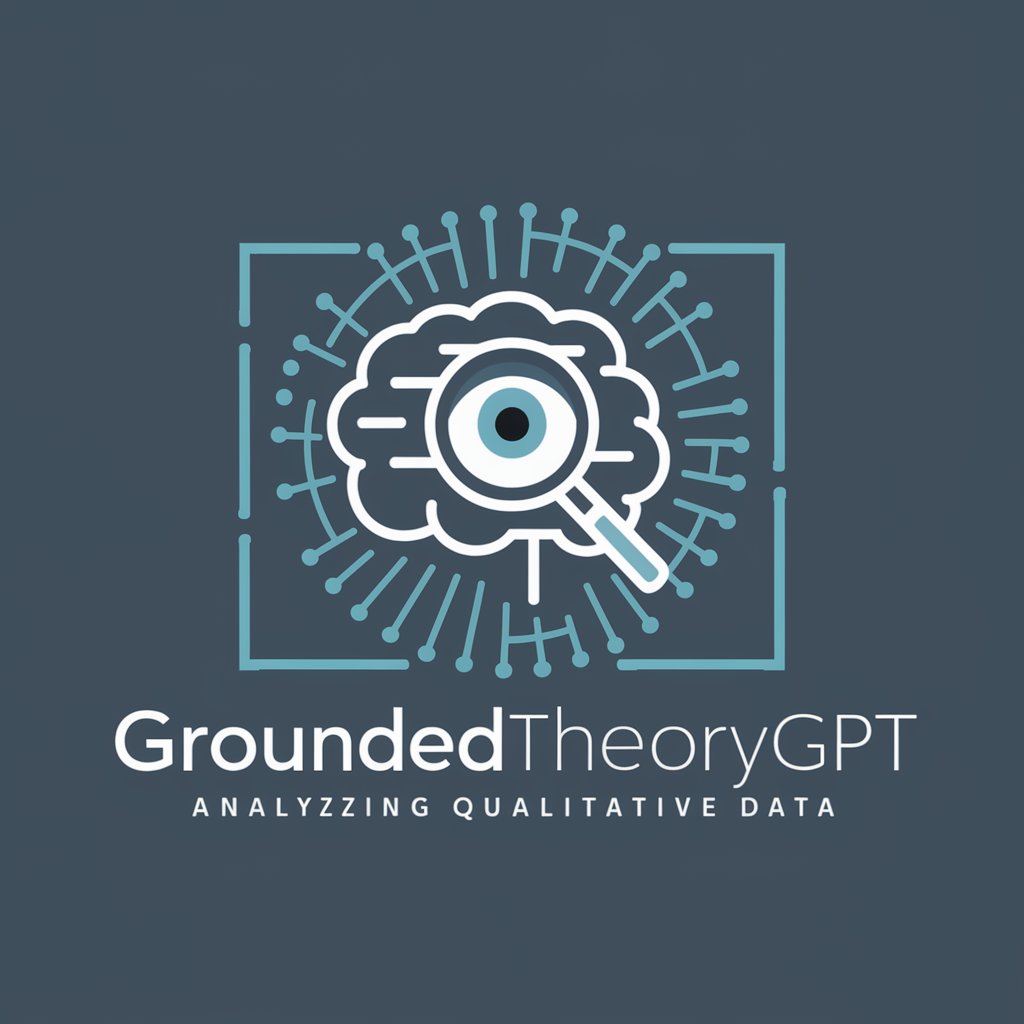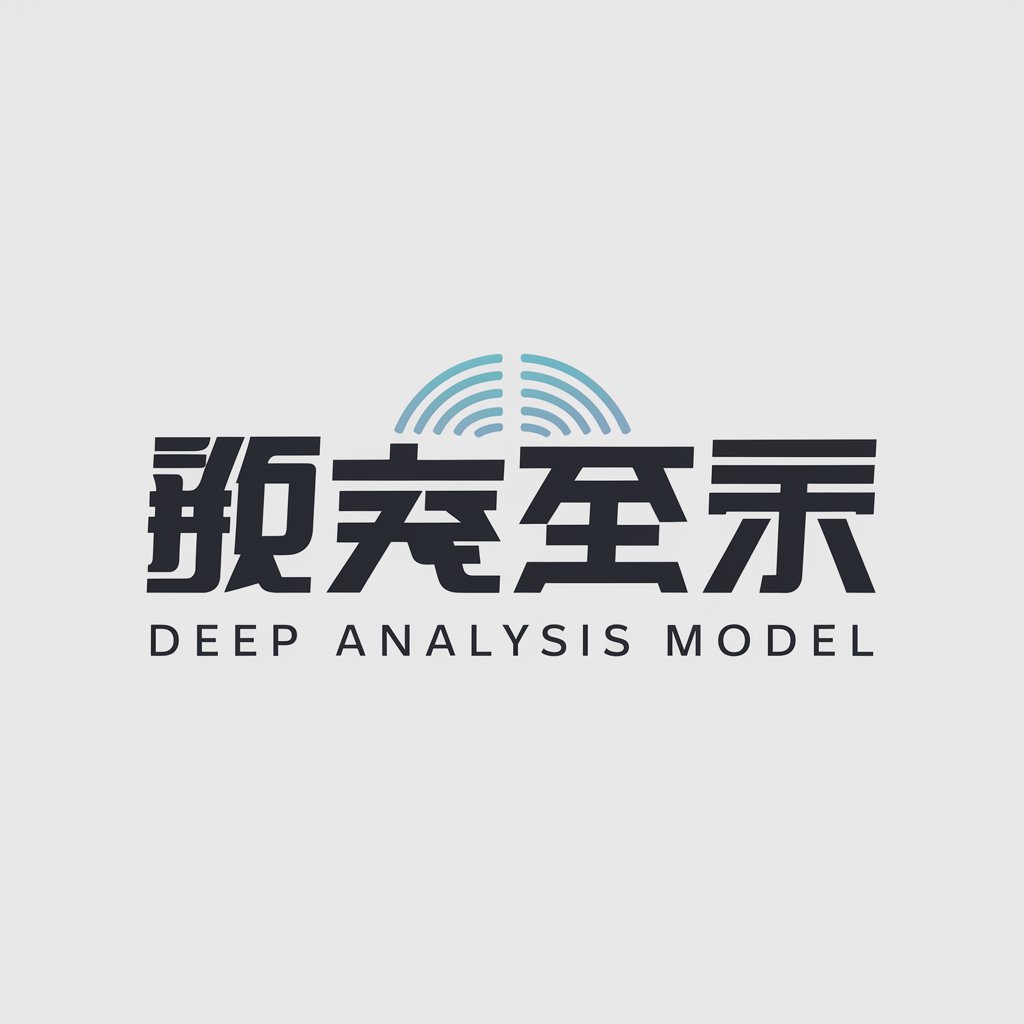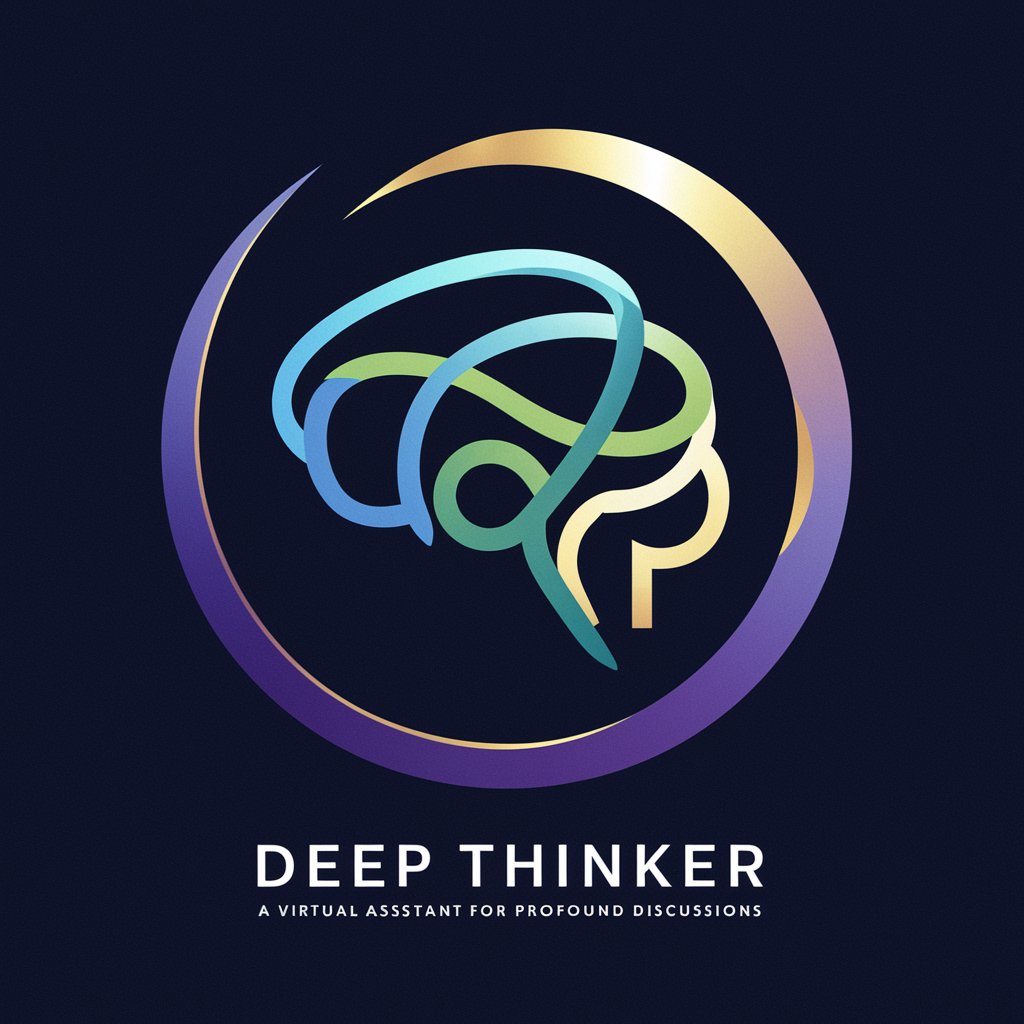
扎根理论分析 - Qualitative Data Analysis

Hello, how can I assist with your qualitative data analysis today?
AI-powered Grounded Theory Analysis
Can you help me analyze qualitative data using Grounded Theory?
I need assistance with open coding for my dataset.
How can I integrate themes from qualitative data effectively?
What are the steps to perform selective coding in Grounded Theory?
Get Embed Code
Introduction to 扎根理论分析 (GroundedTheoryGPT)
扎根理论分析, or GroundedTheoryGPT, is an advanced analytical model designed to assist researchers, analysts, and scholars in analyzing qualitative data using the Grounded Theory methodology. This model specializes in performing third-level coding - open coding, axial coding, and selective coding - to systematically extract, categorize, and integrate key themes from qualitative data. It is built on the principles of Grounded Theory, emphasizing the emergence of theory from data rather than imposing preconceived notions or hypotheses on the data. For example, in a study exploring the experiences of remote workers, GroundedTheoryGPT can identify themes such as 'work-life balance challenges,' 'technology adaptation,' and 'communication barriers' through meticulous coding, and subsequently, develop a theory on remote work dynamics. Powered by ChatGPT-4o。

Main Functions of GroundedTheoryGPT
Qualitative Data Analysis
Example
Breaking down complex interview transcripts into manageable codes.
Scenario
A researcher analyzing interviews from patients about their experiences with chronic illness can use GroundedTheoryGPT to identify recurring themes such as 'emotional support needs' and 'healthcare system navigation challenges.'
Thematic Synthesis
Example
Identifying and integrating themes to form a cohesive theoretical framework.
Scenario
In studying community responses to environmental changes, GroundedTheoryGPT can synthesize findings into key themes like 'community resilience,' 'adaptation strategies,' and 'local knowledge utilization,' leading to a comprehensive understanding of community adaptation processes.
Systematic and Thorough Analysis
Example
Covering all relevant aspects of the data through a structured coding process.
Scenario
When examining qualitative data on user experience with a new tech product, GroundedTheoryGPT systematically codes user feedback to uncover underlying issues and positive aspects, aiding in product improvement and development.
Ideal Users of GroundedTheoryGPT Services
Academic Researchers
Scholars and academics across disciplines such as sociology, psychology, education, and health sciences, who engage in qualitative research. They benefit from GroundedTheoryGPT's ability to systematically analyze and develop theories based on their data, enhancing the depth and rigor of their research findings.
Market Researchers and Analysts
Professionals conducting qualitative market research, including customer interviews, focus groups, and product feedback analysis. GroundedTheoryGPT helps in identifying consumer trends, behaviors, and preferences, providing actionable insights for marketing strategies and product development.
Policy Makers and Social Workers
Individuals and organizations involved in policy development, social work, and community planning who rely on qualitative data to inform their decisions. GroundedTheoryGPT aids in understanding community needs, stakeholder perspectives, and the impact of social policies, thereby facilitating informed decision-making and effective program design.

How to Use Grounded Theory Analysis Tool
1. Start Your Free Trial
Access a free trial without needing to log in or subscribe to ChatGPT Plus by visiting yeschat.ai.
2. Prepare Your Data
Gather your qualitative data, such as interview transcripts, observational notes, or any text-based data that needs analysis.
3. Initiate Coding Process
Begin with open coding to identify and categorize key information within your data set.
4. Develop Connections
Use axial coding to relate codes to each other, identifying patterns and themes through a combination of inductive and deductive reasoning.
5. Finalize Your Analysis
Conclude with selective coding, refining the theory by pinpointing core categories and their properties to form a cohesive theoretical framework.
Try other advanced and practical GPTs
路德维希·维特根斯坦
Philosophy, Reimagined by AI

菜根谭智者
Timeless insights for modern lives.

Story Visualizer - Version A1.9
Bringing Stories to Life with AI

备餐食谱机器人
Effortless meal planning with AI

StepWise Goal
AI-Powered Path to Your Goals

数据预处理脚本生成器
Automate preprocessing with AI-driven insights

居家设计师
Revolutionizing Space with AI

中国居民膳食指南
Empowering Nutrition with AI

居优助手
Transform your space with AI-driven design and Feng Shui.

居家设计助手
Transform Your Space with AI-Powered Design Insights

居美家
Envision Your Space, Powered by AI

白居易
Revolutionizing Lyrics with AI Creativity

Frequently Asked Questions About Grounded Theory Analysis Tool
What is Grounded Theory Analysis Tool?
It's a specialized tool designed to analyze qualitative data using Grounded Theory methodology, systematically extracting, categorizing, and integrating key themes to form a theoretical framework.
Who can use this tool?
Researchers, academics, students, and professionals working with qualitative data in fields like sociology, psychology, education, and health sciences.
What types of data can I analyze?
The tool is suited for text-based qualitative data, including interview transcripts, observational notes, open-ended survey responses, and field notes.
How does the coding process work?
The process involves three coding phases: open coding to identify initial categories, axial coding to explore relationships among categories, and selective coding to develop a cohesive theory.
Can I try the tool before subscribing?
Yes, you can access a free trial without needing to log in or subscribe to ChatGPT Plus by visiting yeschat.ai.





